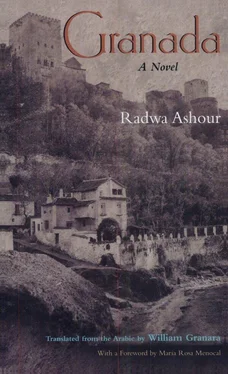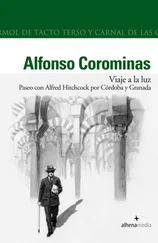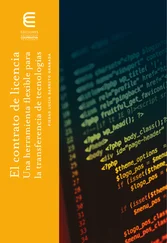“In spite of your denial of these charges, it has been proven by the testimony of eyewitnesses that you caused the death of one child in the womb of his mother, and of another who was ill before you killed him.
“Furthermore, it has been determined that you have turned away from the very church that embraced you and wanted to save your soul. It has become evidently clear that, regardless of your baptism, you remain steadfast in your Muhammadan faith and loyal to the Muslim prophet.
“In spite of all these charges, we have tried and continue to try to bring you back to the truth, to urge you to repent for your infidelity and your loyalty to the devil who is the very essence of nonbelief. We had hoped to return you to the embrace of Holy Mother Church and the Catholic faith, so that you may escape from the punishment of both this world and the next. We have tried our utmost in all of this, and we postponed pronouncing a sentence for as long as we could in the fervent hope that you declare your regret and sorrow. But your arrogance and stubbornness, and your predilection for sin keep you in a state of denial. We therefore report with great sadness and pain our failure in bringing you to repentance.
“So that every person of sound mind and soul be warned, that every true believer shun the path of wicked infidelity, and that all people know that apostasy does not go unpunished, I, Judge Antonio Agapida, who sit before you with the Bible in hand, so solemnly declare in the name of the Holy Church, with God as my witness and the honor and majesty of our faith guiding me, my sentence as follows:
“As you sit before us in the Square of Bibarambla Gate, we declared you an unrepentant infidel, and condemn you to death by fire.”
The crowd roared, and the shouts of the masses that pounded in Saleema s head like thunderous hammers mixed with the pounding of her heart and the throbbing in her stomach. She didn’t want to look around her. She didn’t want to look because she feared their eyes, Castilian eyes gleaming with delight and eager to watch, and Arab eyes that break your heart with their sorrowful or frightened looks. She doesn’t look up, but she hears a voice that sounds like the voice of Saad. She keeps her eyes down. They unfasten some of her shackles and lead her toward the woodpile.
Maryama was worried sick over Saad and Hasan’s delay, but she couldn’t refuse Aysha’s request to tell her a story.
“Once upon a time, Aysha, there was a big tree in the sky that had as many green leaves as the number of people there were on earth, people from all over the earth, small and big, girls and boys, those who spoke Arabic like us and those who didn’t. It was a big tree that sheds its leaves and then grows new ones over and over again. Every year on the night of Laylat al-Qadr, the tree sprouts a strange and wondrous leaf. In the year this story takes place, the tree sprouted…”
Maryama stopped. She was at a loss at what to say. Her mind was wandering in many directions, and she was thinking about why Hasan and Saad were late. She wondered if Saleema was to be sentenced that day.
“And so, then what happened, Auntie Maryama?”
Maryama looked into the face of the little girl and she took a long deep breath. She let it out and continued her story.
Abu: father [of]; honorific, followed by the name of the oldest son
auto-da-fé: a ceremony conducted by the Office of Inquisition to pronounce judgment on and order the execution of a heretic
bin, bint: “son of,” “daughter of”; term forming part of a person’s name, following the first or given name
dinar: a coin, usually of gold
faqeeh: a scholar and teacher of Quranic and Islamic studies
fatwa: a solicited legal opinion (response)
imam: prayer leader in a mosque; spiritual head of a Muslim community
muezzin: the announcer of prayer time
Ramadan: the holy month when Muslims are obligated to fast from sunrise to sunset
Sidi: an honorific equivalent to “Lord,” “Master,” or “Sir”
shahada: the profession a faith incumbent upon all Muslims: “There is no god but God, and Muhammad is His prophet.”
shaykh: a title given to a respected elder or to a scholar of religious studies
souk: a marketplace and center for commercial and social activity
sultan: a title of power, equivalent to the title “prince”
Umm: “mother [of]”; honorific, followed by the name of the oldest son
Vizier: the head of government, usually under a caliph or prince

Egyptian writer Radwa Ashouris a novelist, critic, and professor of English literature at Ain Shams University, in Egypt. After studying English Literature at Cairo University, graduating in 1967, she earned her doctorate in African-American literature in 1975 from Massachusetts University. She then joined the faculty at Ain Shams University, where she has taught ever since, except for brief periods. Ashour has written several novels and short stories; the trilogy of which Granada forms the first part was named Best Book of the Year by the General Egyptian Book Organization in 1994, and won first prize in the first Arab Women’s Book Fair two years later.
William Granarais a translator, writer, and professor of Arabic language and literature at Harvard University, where he also directs the Arabic language program. He studied Arabic at Georgetown University and received his Ph.D. in Arabic and Islamic Studies at the University of Pennsylvania. He formerly served as the executive director of the Center for Arabic Study at the American University in Cairo and as director of the Arabic Field School of the U.S. Department of State in Tunis, Tunisia. Professor Granara specializes in the history and culture of Muslim Sicily, and has written on cross-cultural encounters between Islam and Christendom throughout the Middle Ages. In addition, he lectures and writes on contemporary Arabic literature and has published translations of Egyptian and North African fiction.

In relatively recent years one notes two prominent and best-selling 1492 novels: Tariq Ali’s Shadows of the Pomegranate Tree, with a setting just outside the city of Granada but at the same moment Ashour has chosen, and Noah Gordon’s The Last Jew, whose eponymous hero is, instead, from Toledo, but who shares with the Muslim characters — as the Jews did indeed share historically, in Spain, with the Muslims — their struggles with the choices of adaptation and conversion versus resistance or exile. Far less common are historical novels set in earlier moments in the very rich landscape that is the seven-hundred-some year history that begins in the middle of the eighth century, although two recent ones, both involving the more positive story of the legendary religious tolerance and cultural admixtures of caliphal Cordoba, are worth noting: Journey to the End of the Millennium by A. B. Yehoshua and, in French, Le calendrier de Cordue, by Yves Ouahnon.
Читать дальше














